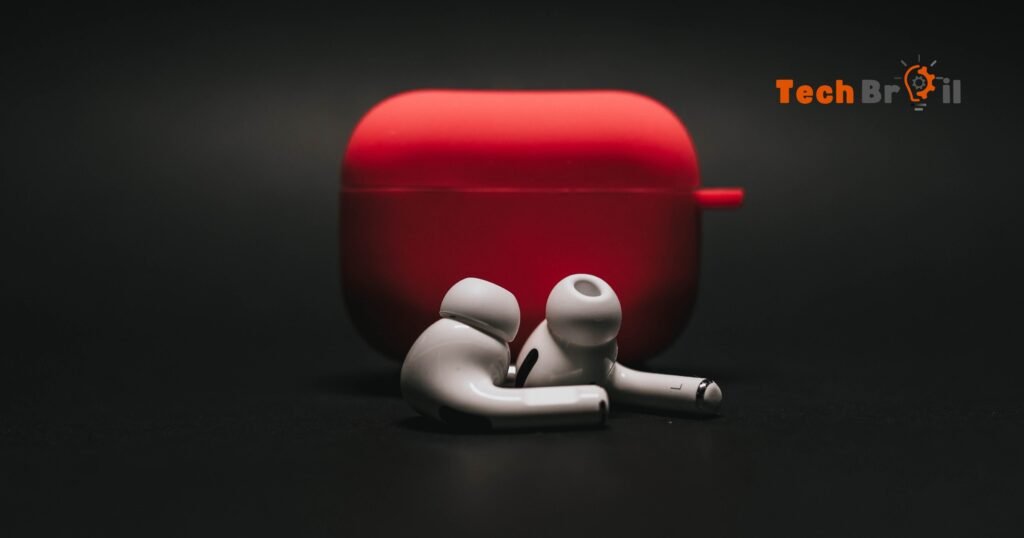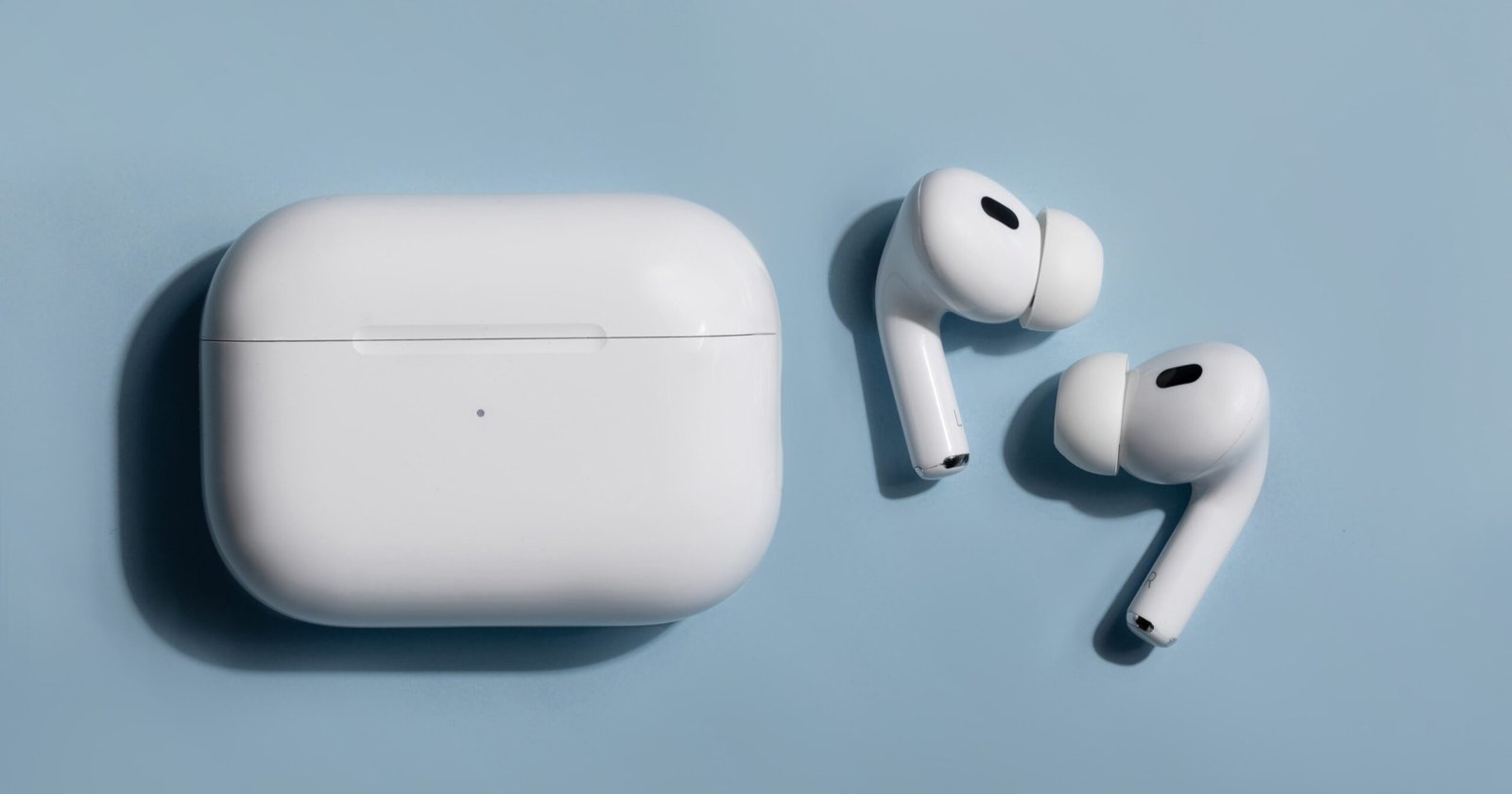Why Are My AirPods So Quiet Even After Cleaning? Disable Low Power mode initially, as it is frequently the cause of the issue. After that, charge the AirPods for one to two hours. Additional remedies involve calibrating the sound, disabling equalizer settings, and verifying Volume Limit controls.
Your AirPods might remain quiet despite regular cleaning due to several potential issues. It could be that the volume on your connected device is too low, why are my AirPods so soft even after cleaning, or there could be a problem with your Bluetooth connection.
Furthermore, your AirPods might suffer from a hardware malfunction, or the speaker grilles could be damaged or blocked. While software updates can sometimes rectify such issues, persistent problems might necessitate visiting an Apple Store or an authorized service center.

Introduction to AirPods’ Audio Issues
AirPods are popular wireless earbuds, but users may encounter issues where the audio seems quieter than usual, even after cleaning. Understanding the causes behind this audio problem is essential for troubleshooting. Let’s explore why your AirPods could be quiet and how to fix them.
Before we dive into the potential causes of decreased audio volume, it is essential to understand the importance of regular cleaning for your AirPods. Earwax, dirt, why are my AirPods so quiet even after cleaning?
EarwaxBuildupp and Blockage
Earwax accumulation is a common cause of decreased sound quality in AirPods. Despite cleaning, residual earwax might still obstruct the speaker grilles or sound ports, affecting audio output. This buildup can also lead to muffled or distorted sound.
To clean your AirPods, gently remove any visible earwax using a soft, dry cloth. Avoid using sharp objects or liquids that could damage the device. If the buildup is stubborn, you can use a tiny brush or toothpick to remove it from the speaker grilles.

Cleaning Techniques and Their Limitations
Exploring various cleaning methods for AirPods. While cleaning can remove visible debris, certain techniques might not effectively eliminate deeper wax buildup that affects sound quality. In such cases, it is best to seek professional assistance.
Apple recommends using a soft-bristled brush, like a clean toothbrush or an unused makeup brush, to remove debris. The company also suggests cleaning inside the speaker grilles and sound ports with a dry cotton swab.
Misalignment or Damage to Components
Discussing the possibility of misalignment or damage within the AirPods’ internal components. Physical damage or misalignment of speakers or other internal elements can impact sound output. This issue could occur due to accidental drops or repeated rough handling.
If you suspect physical damage, contact Apple support for further assistance. Depending on the extent of the damage, they may recommend a repair or replacement option.
Bluetooth Connectivity Issues
Highlighting potential Bluetooth connectivity problems affecting sound quality. Issues with device connections, interference, or signal disruptions can lead to quieter audio playback.
Disconnect and reconnect your AirPods to your device to troubleshoot Bluetooth connectivity issues. You can also try turning off Bluetooth on all nearby devices to reduce potential interference.

Software or Firmware Problems
Software or firmware issues can potentially affect the audio output of your AirPods. These issues could stem from outdated software on your connected device or firmware on your AirPods, firmware being the built-in software that controls your AirPods’ functionality. Problems can also arise due to a glitch in your Bluetooth settings.
To address these issues, ensure that your connected device’s operating system and your AirPods’ firmware are current. You can also try resetting your AirPods or your device’s Bluetooth settings. If problems persist, contacting Apple Support for further assistance would be advisable.
Environmental Factors and Sound Isolation
Environmental factors, such as surrounding noise levels and sound isolation, can significantly influence the perceived volume of your AirPods. High ambient noise levels can drown out your AirPods’ sound, making them appear quieter.
In contrast, AirPods Pro, featuring Active Noise Cancellation, offers superior sound isolation by blocking outside noise, thus providing a richer audio experience. If you’re using regular AirPods, consider switching to a quieter environment or investing in an ear tip that offers better noise isolation if you consistently find your AirPods too quiet.
Health and Ear-related Considerations
Your health, specifically ear-related issues, can also impact how you perceive sound from your AirPods. Conditions such as hearing loss, ear infections, and wax buildup within your ear canal can all affect your hearing ability.
Suppose you’ve noticed a significant decrease in volume with your AirPods and other audio devices. In that case, it may be worth scheduling an appointment with a healthcare professional to check your hearing. Always remember, that listening to audio at high volumes for prolonged periods can lead to noise-induced hearing loss, so it’s essential to use your AirPods responsibly.
Seeking Professional Assistance
If you’ve tried the solutions mentioned above and the audio issues with your AirPods persist, it may be time to seek professional help. Start by contacting Apple Support, who can guide you through additional troubleshooting steps.
You can schedule an appointment at an Apple Store or authorized service center for an in-person device inspection. Please note that if your AirPods are out of warranty, there might be a cost for repair or replacement. However, persistent audio issues should not be ignored, as they can detract from your overall listening experience.
Conclusion
In conclusion, there are various potential causes for decreased audio volume in your AirPods, ranging from physical blockages and damage to software and connectivity issues and even personal health considerations. Regular cleaning: why are my AirPods so quiet even after cleaning? Careful handling and keeping your devices updated can help maintain optimal audio output. However, if you’re experiencing persistent sound issues, do not hesitate to seek professional assistance. Remember, while AirPods offer a convenient and high-quality listening experience, using them responsibly to safeguard your ear health is crucial.
FAQs
Why are my AirPods quieter on one side?
One of your AirPods could be quieter than the other for several reasons. This could range from earwax or debris buildup, why my AirPods are so quiet even after cleaning, damage to internal components, or issues with Bluetooth connectivity. Try cleaning your AirPods carefully, and if the problem persists, consider getting them checked professionally.
Can I clean my AirPods with alcohol?
Apple recommends using a soft, dry cloth to clean your AirPods. Avoid exposing your AirPods to liquids, including alcohol, as they can cause damage.
Does Apple offer free fixes for AirPods problems?
If your AirPods are under warranty, Apple might be able to repair or replace them for free, depending on the specific problem. If they are out of warranty, a cost could be associated with fixing them.
How do I check if my device or AirPods need an update?
For your connected device, you can check for updates in the device’s settings. For AirPods, connect them to your iOS device and go to Settings > General > About > AirPods to see the current firmware version.
Can listening to loud music on AirPods damage my hearing?
Listening to loud music for extended periods, why are my AirPods so quiet even after cleaning, regardless of the type of headphones, can lead to noise-induced hearing loss. It’s essential to use AirPods responsibly and at a safe volume level.

